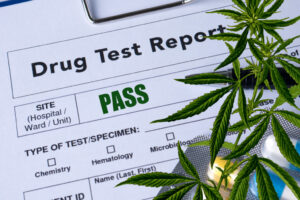 Many voices are calling for the legalization of Marijuana in Canada and nowhere more vigorously than in Vancouver. Former law-enforcement officials, libertarians, and various progressive groups believe that the time has come to simply legalize the drug and treat it—though with some extra regulations—akin to alcoholic drinks. The main reasons for this advocacy is to reduce costs in law enforcement, to weaken the control by various drug cartels for the supply of this substance, and in general to let individuals have the liberty to decide what to do to themselves provided they do not harm others.
I think these three reasons are less persuasive than usually portrayed. First of all, the cost that our society experiences as the result of the free use of alcohol (above a certain age) is considerable. The cost of alcohol abuse, violence, broken relationships, families and careers is impossible to calculate, but is no doubt very high. I am not suggesting making alcohol illegal, but it is another thing to argue that because alcohol is unrestricted, therefore, we should also make the use of marijuana unrestricted simply because the cost of the enforcement of the ban is too high. The costs we do not know may be much higher and once we make marijuana legal, as is the case with alcohol, there is no going back.
Let me add a point on the moral value involved in legalizing marijuana. Our society was built on the moral code of working hard, loving your family, and having enough left to give to your community. A big part of this foundation came by means of Judeo-Christian values. In this value system, immoderate liquor use, immorality, selfishness, abuse of the environment are all types of conduct that detract from our moral and social strength. Except for a narrow range of marijuana-as-medicine and administered by medical personnel, the legal public use of marijuana adds only to the negative societal ledger laid out above. The main ingredient, delta-9-tetrahydrocannabinol or THC, makes the user less productive, more selfish (just focused on getting another ‘high’) and less able to help the community. No doubt there will be responsible marijuana users, but equally likely there will be more abusers of the drug once it is legal.
But let me come to my main point: legalizing marijuana will mean a major setback to Canada-US relations. First, our two governments in their recent ‘Beyond the Border’ Declaration are inching towards more understanding and cooperation on how to manage our shared border so that travel, tourism and trade will be less hindered by lengthy border waits and excessive security procedures. If marijuana is free on this side of the border, we must expect American border authorities to adopt a different approach. Rather than thinning the border, they will be worried that Canadians and home-bound Americans will be trying to bring across marijuana in various quantities. Because the United States Congress has control over controlled substances and the fifty states have various other powers to restrict the use of drugs, we cannot expect the legalization of marijuana to occur in the United States in the foreseeable future, if ever.
The second reason why legalizing marijuana in Canada will affect our bilateral relationship with the United States can be drawn from the Dutch experience. Drug tourism has become such a problem in Amsterdam as well as cities bordering Germany and Belgium that Dutch authorities are now trying to restrict the use and availability of soft drugs. Why? Thousands of drug tourists have spiked crime rates and brought back the sale of drugs on the streets. Those who argue legalizing marijuana in Vancouver would reduce our law enforcement costs should take note. One can easily imagine Vancouver with its mild climate becoming a drug haven for thousands of Americans. The trouble this will cause in our city, to our two-way travel and tourism on the border and to extra costs to trade because of border thickening should give all proponents cause to reconsider.
Alexander Moens is a professor of political science at Simon Fraser University
Many voices are calling for the legalization of Marijuana in Canada and nowhere more vigorously than in Vancouver. Former law-enforcement officials, libertarians, and various progressive groups believe that the time has come to simply legalize the drug and treat it—though with some extra regulations—akin to alcoholic drinks. The main reasons for this advocacy is to reduce costs in law enforcement, to weaken the control by various drug cartels for the supply of this substance, and in general to let individuals have the liberty to decide what to do to themselves provided they do not harm others.
I think these three reasons are less persuasive than usually portrayed. First of all, the cost that our society experiences as the result of the free use of alcohol (above a certain age) is considerable. The cost of alcohol abuse, violence, broken relationships, families and careers is impossible to calculate, but is no doubt very high. I am not suggesting making alcohol illegal, but it is another thing to argue that because alcohol is unrestricted, therefore, we should also make the use of marijuana unrestricted simply because the cost of the enforcement of the ban is too high. The costs we do not know may be much higher and once we make marijuana legal, as is the case with alcohol, there is no going back.
Let me add a point on the moral value involved in legalizing marijuana. Our society was built on the moral code of working hard, loving your family, and having enough left to give to your community. A big part of this foundation came by means of Judeo-Christian values. In this value system, immoderate liquor use, immorality, selfishness, abuse of the environment are all types of conduct that detract from our moral and social strength. Except for a narrow range of marijuana-as-medicine and administered by medical personnel, the legal public use of marijuana adds only to the negative societal ledger laid out above. The main ingredient, delta-9-tetrahydrocannabinol or THC, makes the user less productive, more selfish (just focused on getting another ‘high’) and less able to help the community. No doubt there will be responsible marijuana users, but equally likely there will be more abusers of the drug once it is legal.
But let me come to my main point: legalizing marijuana will mean a major setback to Canada-US relations. First, our two governments in their recent ‘Beyond the Border’ Declaration are inching towards more understanding and cooperation on how to manage our shared border so that travel, tourism and trade will be less hindered by lengthy border waits and excessive security procedures. If marijuana is free on this side of the border, we must expect American border authorities to adopt a different approach. Rather than thinning the border, they will be worried that Canadians and home-bound Americans will be trying to bring across marijuana in various quantities. Because the United States Congress has control over controlled substances and the fifty states have various other powers to restrict the use of drugs, we cannot expect the legalization of marijuana to occur in the United States in the foreseeable future, if ever.
The second reason why legalizing marijuana in Canada will affect our bilateral relationship with the United States can be drawn from the Dutch experience. Drug tourism has become such a problem in Amsterdam as well as cities bordering Germany and Belgium that Dutch authorities are now trying to restrict the use and availability of soft drugs. Why? Thousands of drug tourists have spiked crime rates and brought back the sale of drugs on the streets. Those who argue legalizing marijuana in Vancouver would reduce our law enforcement costs should take note. One can easily imagine Vancouver with its mild climate becoming a drug haven for thousands of Americans. The trouble this will cause in our city, to our two-way travel and tourism on the border and to extra costs to trade because of border thickening should give all proponents cause to reconsider.
Alexander Moens is a professor of political science at Simon Fraser University 








